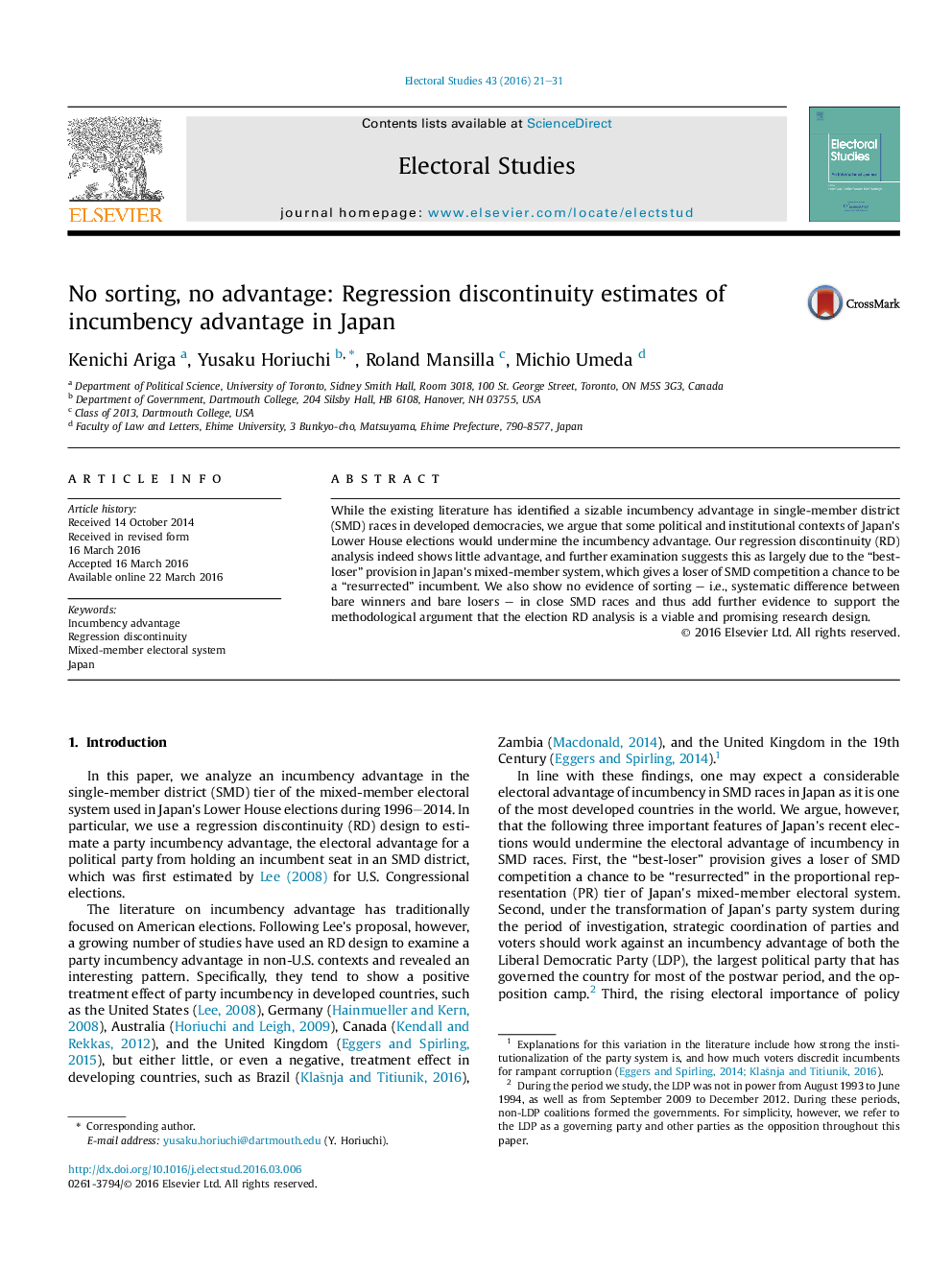| Article ID | Journal | Published Year | Pages | File Type |
|---|---|---|---|---|
| 7463531 | Electoral Studies | 2016 | 11 Pages |
Abstract
While the existing literature has identified a sizable incumbency advantage in single-member district (SMD) races in developed democracies, we argue that some political and institutional contexts of Japan's Lower House elections would undermine the incumbency advantage. Our regression discontinuity (RD) analysis indeed shows little advantage, and further examination suggests this as largely due to the “best-loser” provision in Japan's mixed-member system, which gives a loser of SMD competition a chance to be a “resurrected” incumbent. We also show no evidence of sorting - i.e., systematic difference between bare winners and bare losers - in close SMD races and thus add further evidence to support the methodological argument that the election RD analysis is a viable and promising research design.
Related Topics
Social Sciences and Humanities
Social Sciences
Geography, Planning and Development
Authors
Kenichi Ariga, Yusaku Horiuchi, Roland Mansilla, Michio Umeda,
